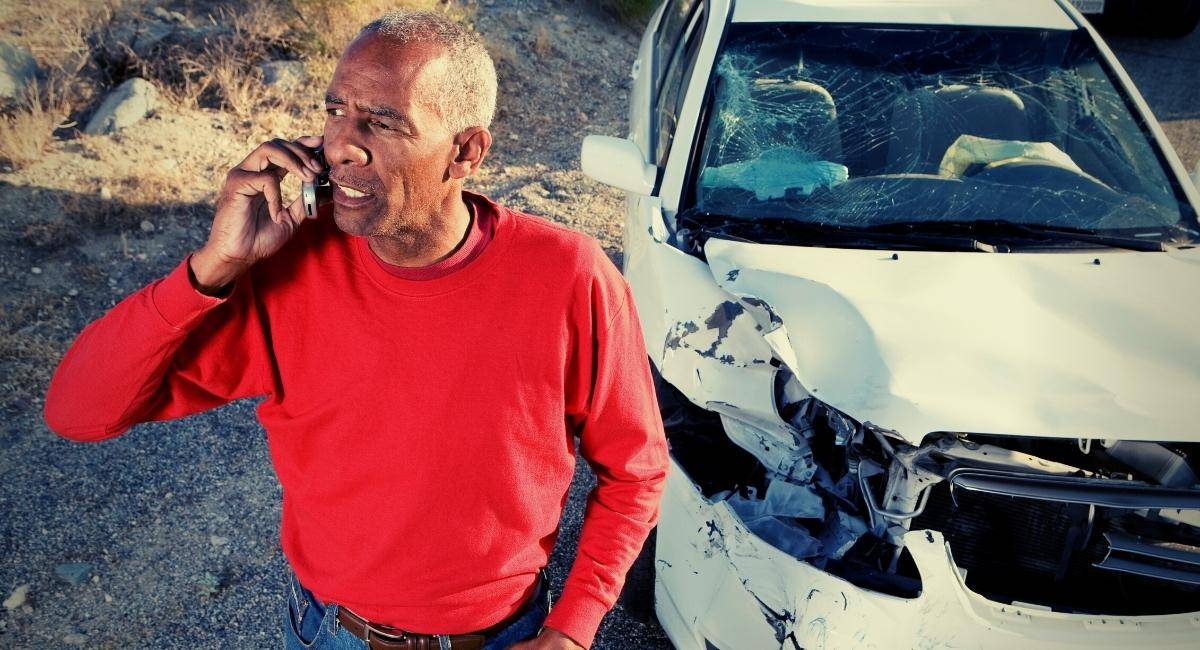Texas Transportation Code § 550.023 is the state law detailing what a person should do if they are in a car accident with another person. Numerous conditions must be completed when another person has their vehicle damaged, suffers an injury, or dies during an incident, and failing to stop is often referred to as a hit and run, leaving the scene of a crash, or a hit and skip.
There are many reasons why people may not complete any of these requirements. Every situation is different and can be interpreted in various ways, but Texas law is generally unforgiving when it comes to leaving the scene of an accident.
A hit-and-run charge is not something to take lightly. When you are charged with failure to stop and render aid, it is imperative that you contact a qualified criminal defense attorney.
Failure to Stop Defense Lawyer in Plano, Allen, Frisco, and McKinney, TX
If you or your loved one is dealing with failure to stop and render aid, get yourself legal representation as soon as possible. The Law Offices of Richard C. McConathy represent clients in all kinds of failure to stop cases. Our firm will be able to work to help you achieve the most favorable possible outcome for your case.
Call (469) 304-3422 or contact the Law Offices of Richard C. McConathy today at for a consultation about your alleged offense in Plano, Allen, Frisco, McKinney, TX, and surrounding areas of Collin County, Texas. We can then better understand the nature of your charges and also examine your possible defense options.
Conditions for Failure to Stop and Render Aid Conviction under Texas Law
Texas Transportation Code § 550.021 establishes that the operator of a motor vehicle involved in an accident resulting in or reasonably likely to result in injury to or death of a person must:
- immediately stop the vehicle at the scene of the accident or as close to the scene as possible;
- immediately return to the scene of the accident if the vehicle is not stopped at the scene of the accident;
- immediately determine whether a person is involved in the accident and if a person is involved in the accident, whether that person requires aid; and
- remain at the scene of the accident until the operator complies with the requirements of Texas Transportation Code § 550.023.
Texas Transportation Code § 550.023 provides that the operator of a motor vehicle involved in an accident resulting in the injury or death of a person or damage to a vehicle that is driven or attended by a person must give their name and address, the registration number of the vehicle they were driving, and the name of their motor vehicle liability insurer to any person injured or the operator or occupant of or person attending a vehicle involved in the collision, show their driver’s license, and provide any person injured in the accident reasonable assistance, including transporting or making arrangements for transporting the person to a physician or hospital for medical treatment if it is apparent that treatment is necessary, or if the injured person requests the transportation.
An alleged offender commits the crime of failing to stop and render aid after an automobile accident if:
- They were intentionally or knowingly involved in an accident;
- They were the driver or operator of any vehicle involved in the accident;
- It was apparent that medical treatment was necessary;
- The accident resulted in injury to or to death of any person; and
- The charge failed to render assistance by doing one of the following:
- immediately return to the scene of the accident if the vehicle is not stopped at the scene of the accident;
- immediately stop the vehicle at the scene of such accident or as close to the scene as possible; and
- remain at the scene of the accident and render to any person injured in such accident reasonable assistance, including the carrying or the making of arrangements for the carrying of such person to a physician, surgeon, or hospital for medical or surgical treatment, if it is apparent that such treatment is necessary or if such carrying is requested by the injured person.

Penalties for Failing to Stop and Render Aid in Texas
There are several different consequences for an offender with a “hit and run” case. The way the crime is charged depends on the circumstances and allegations of the incident.
There are a few common key elements to classify the penalty for a “hit and run.” These can be personal injury, serious bodily injury, death, unattended property, hitting an unoccupied and parked automobile, or hitting an occupied and moving automobile.
Failure to Stop Resulting in Injury or Death
Under Texas Transportation Code § 550.021, the most severe crime regarding “hit and run” is when there is a bodily injury, serious bodily injury, or death.
If it is proven that serious bodily injury as a result of the accident, then the crime is charged as a third-degree felony. If it is proven that death was a result of the accident, then the crime is charged as a second-degree felony.
Failure to Stop after Striking Unattended Property
If a driver hits a fixture or landscaping near a highway, it is required they take action to find and notify the owner or person in charge of the property. The driver is also required to present their driver’s license, name, address, and vehicle registration number to the property owner.
Under Texas Transportation Code § 550.025 if the alleged offender does not take these reasonable steps to inform the owner, their offense could result in Class C misdemeanor charges if the damage is less than $200 or Class B misdemeanor charges if the damage is $200 or more.
Failure to Stop after Striking a Parked Car
Texas Transportation Code § 550.024 details that the driver who hits a parked car must locate the owner of the car and leave their information with the owner. The note or verbal information must include their name and address. If the driver does not provide this information or find the owner, they are violating the law.
An offense could result in Class C misdemeanor charges if the damage is less than $200 or Class B misdemeanor charges if the damage is $200 or more.
Failure to Stop after Striking an Occupied Vehicle
The Texas Transportation Code § 550.022 states that to leave the scene of an accident involving damage to an occupied vehicle, is a crime. Texas law requires that both drivers involved in the accident must:
- Remain at the scene until certain requirements of § 550.023 have been met; and
- Stop their motor vehicles at the scene of the crash or as close to the scene without the obstruction of traffic.
If a person does not comply with all the requirements of § 550.022, they are committing a crime. A conviction of failing to stop after striking an occupied vehicle is either Class C misdemeanor charge if the damage is less than $200 or Class B misdemeanor charges if the damage is $200 or more.
Possible Defenses for Hit and Run Cases in Texas
To get a conviction, the prosecution must prove beyond reasonable doubt that the offender was knowingly or intentionally involved in a crash and failed to stop. If the charge did not understand that he or she was involved in an accident, then they may have reduced charges or their case dismissed.
For instance, if the two automobiles did not actually collide completely, then the driver may not have noticed any damage. There must be evidence of intent to be charged with failure to stop and render aid.
Conversely, if the driver was intoxicated by alcohol before the accident, then this information should not be disclosed to the prosecution. “Voluntary Intoxication” is not a defense for failure to stop charges. This information may actually enhance the penalties for the offense.
Collin County Failure to Stop Resources
Traffic Ticket Fines & Penalties — Visit Texas’s Department of Motor Vehicles (DMV) to find information regarding traffic ticket fines and penalties in the different Texas counties. See the different traffic offenses and the financial penalties that go along with it.
Traffic Tickets – Collin County – Justices of the Peace — Use the Collin County website to learn more about traffic tickets. Learn about your options for dealing with a ticket. Also find out more about dismissal options.
Find A Collin County Attorney for Failure to Stop Charges | Law Offices of Richard C. McConathy
If you need help with a failure to stop offense in Collin County, get legal help today. Our firm will conduct a rigorous investigation to fully understand the case and will be able to identify the best path forward for you. We know how to put forth the most aggressive defense against the charges so you can reduce or dismiss your criminal charges.
Contact the Law Offices of Richard C. McConathy today at (469) 304-3422 for a consultation about your alleged offense in Plano, Allen, Frisco, McKinney, TX, and surrounding areas of Collin County, Texas.


